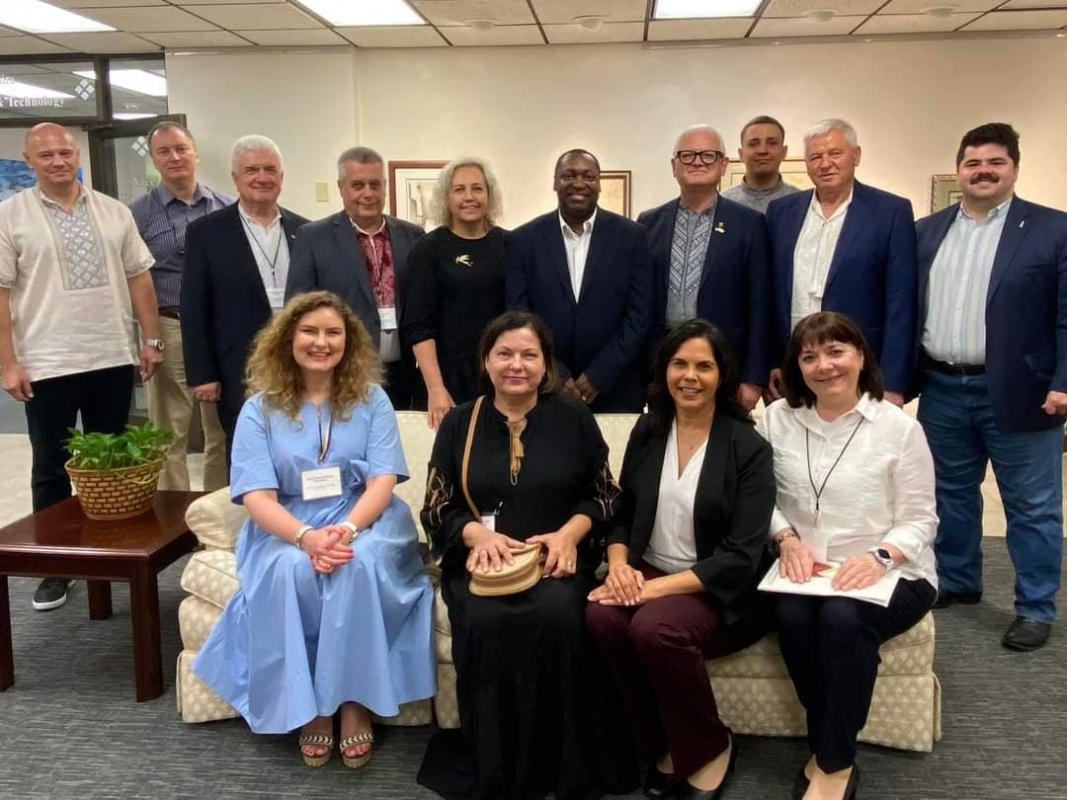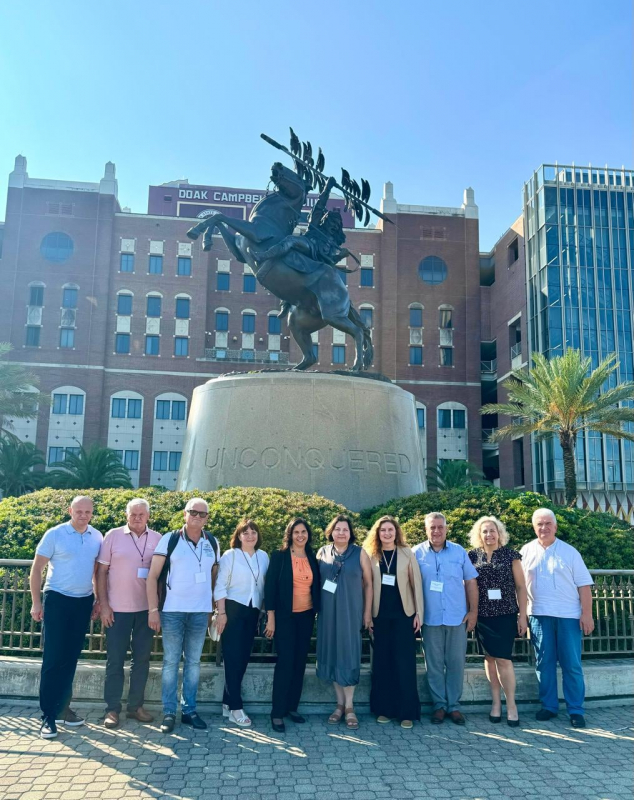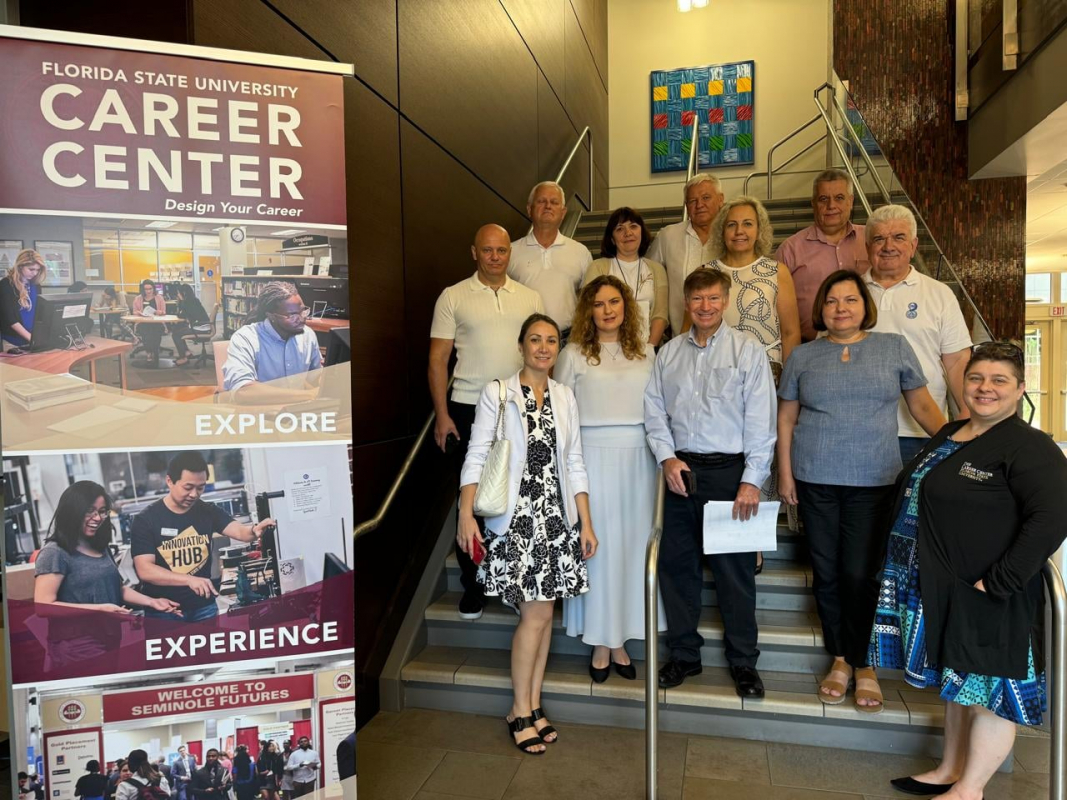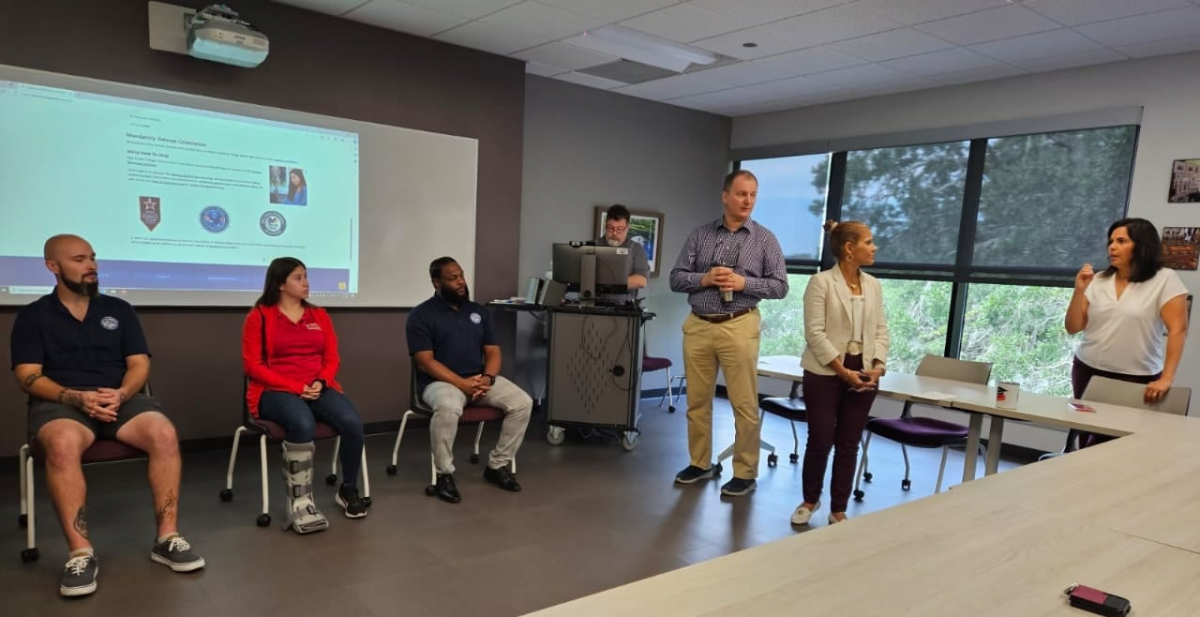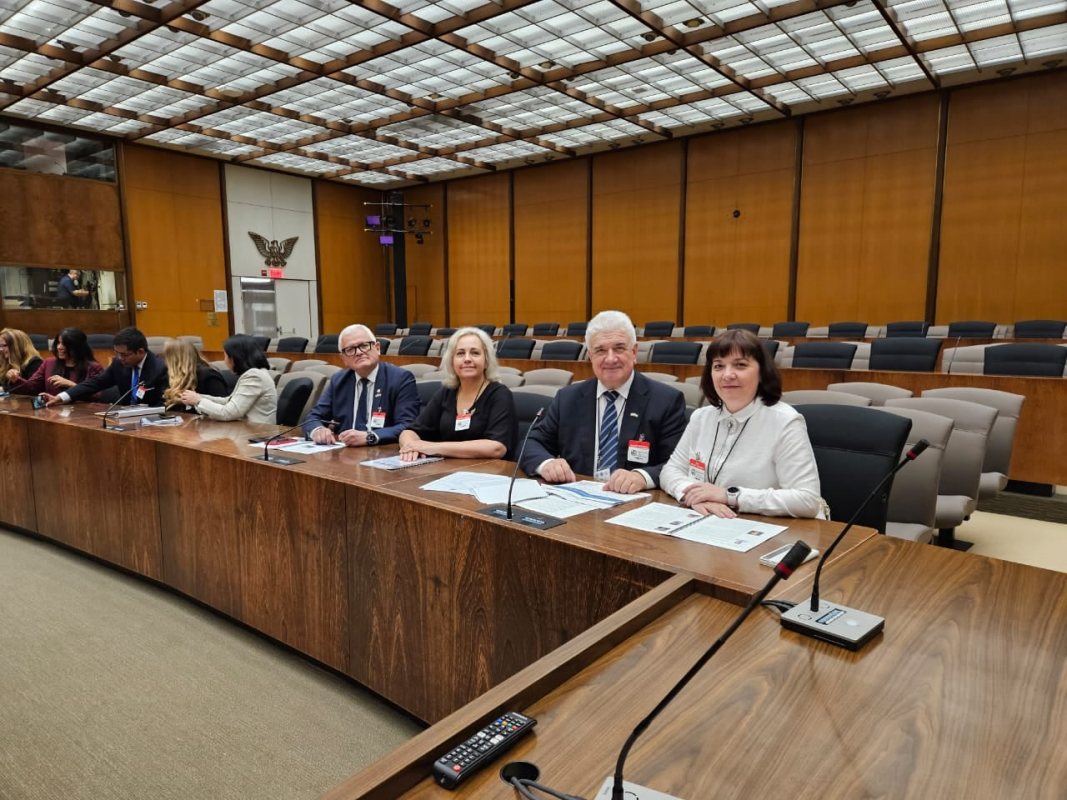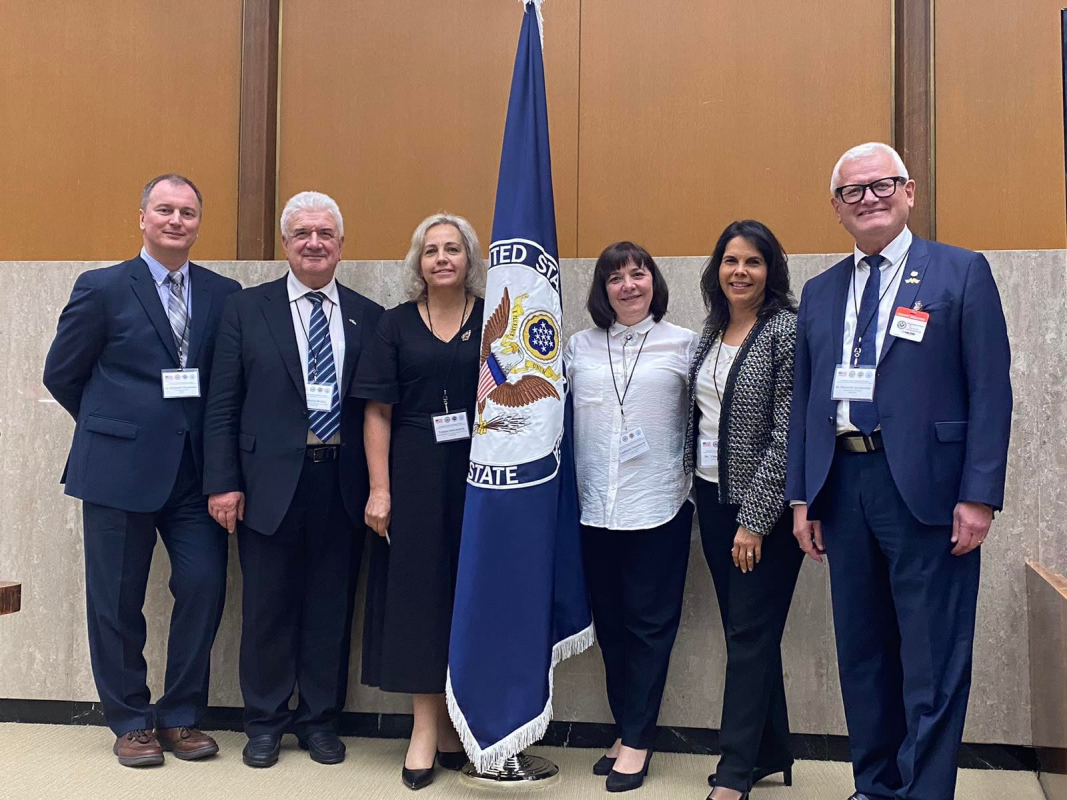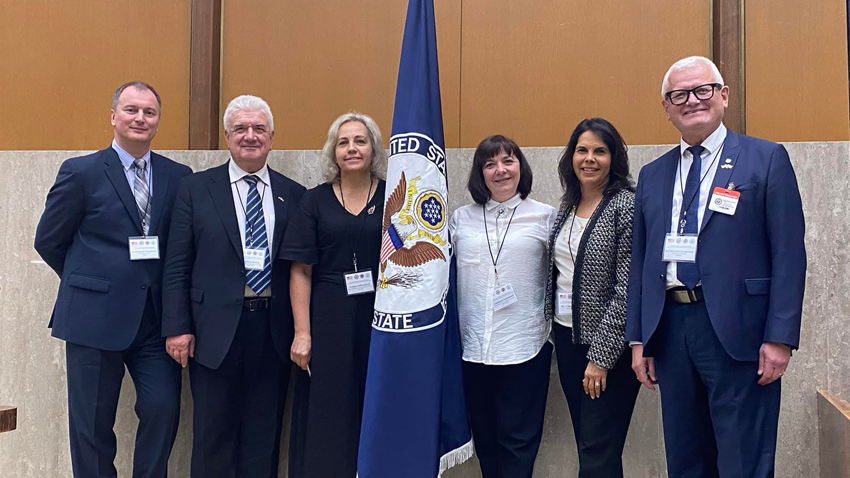Mykhailo Brehin, Director of Automobile and Road College at Lviv Polytechnic National University, was working fruitfully in the United States in July and August.
A unique case
First, responding to an invitation from the U.S. Department of State, he took part in a symposium of alumni of the Community College Administrator Program (CCAP) in Washington, DC. The Bureau of Educational and Cultural Affairs of the U.S. Department of State implemented this program in 2018–2023 for educators from dozens of countries.
In particular, in 2016 and 2018, under this program two groups of college directors from Ukraine spent five weeks studying the experience of Florida community colleges: from the history of their development and formation to their role and place in the modern education system, and their impact on economic development and living standards of local communities, the state, and the nation. In addition to Mykhailo Brehin, the Ukrainian delegation at the CCAP Alumni Symposium included Oleksandr Spivakovsky, Kherson State University Rector, Liudmyla Sumbaieva, Director of the KROK College at Kyiv University, and Tetiana Selivonchyk, Director of the Kovel Industrial and Economic Applied College at the Lutsk National Technical University.
At the plenary session of the symposium, Anthony Koliha, Director of the Office of Global Educational Programs at the U.S. Department of State, reported on the program’s implementation, its effectiveness, and suggested other programs that representatives of participating countries could join. The interns from Ukraine participated in panel discussions at the Education in the U.S. Forum, primarily those dedicated to building international partnerships, cooperation between business, government, vocational and technical education, and enhancing their role and popularization. Each of these discussions is a unique case of experience that is extremely interesting for its implementation in Ukrainian realities, especially in the context of training specialists for the post-war reconstruction of our country.
Exceeded expectations
At the plenary session «Strategy of Cooperation between Education, Business and Government» Mykhailo Brehin, Director of the Automobile and Road College, presented the results of joint efforts of specialized colleges in addressing the issue of supporting the training of road construction specialists for the post-war reconstruction of Ukraine in cooperation with business and government. He also spoke about the implementation of the project «ELECTUDE Training Center for the Training of Automotive Specialists during the Post-War Reconstruction of Ukraine» with the support of the U.S. Embassy in Ukraine.
– This project was implemented in Ukraine in cooperation with the charitable organization Center for Educational Initiatives (Lviv) and the TechTe@ch training center (Bar, Vinnytsia region). The best specialists from Ukrainian educational institutions were involved in the training course on the use of the ELECTUDE program in the educational process, which included translating materials and organizing courses for more than 250 teachers of automotive disciplines from 68 educational institutions in 22 regions of Ukraine.
The training results exceeded all our expectations. In a survey of the program participants, 95% noted significant progress in the quality of the training material and high efficiency of the program. «The widespread implementation of this program in vocational schools will enable the training of highly qualified specialists in the maintenance and repair of automotive equipment and will help students gain better knowledge, develop the necessary skills during practical training and become more competitive in the labour market», assured Mykhailo Brehin.
Hidden engines
Particular attention of the forum participants was drawn to the presentation of the study «America’s Hidden Economic Engines. How Community Colleges Can Drive Shared Prosperity». The study dealt with how educational institutions can be key players in economic development, workforce training, small business support, and providing access to education for the general population. This is crucial for Ukraine today to rebuild those regions whose human resource ecosystem, economy and infrastructure have been affected by the war.
Larita Campbell, a program officer in the Bureau of Educational and Cultural Affairs at the U.S. Department of State, presented a leadership program, which included the best management practices in various fields. As part of the event, the participants had the opportunity to view an informative exhibition of educational technologies.
CCAP alumni also took part in the final event of the Symposium dedicated to its 10th anniversary. During the presentation of the 50-year experience of the American Councils for International Education, which operate in 148 countries, including Ukraine, they learned about programs to support innovation, higher education, culture and leadership.
